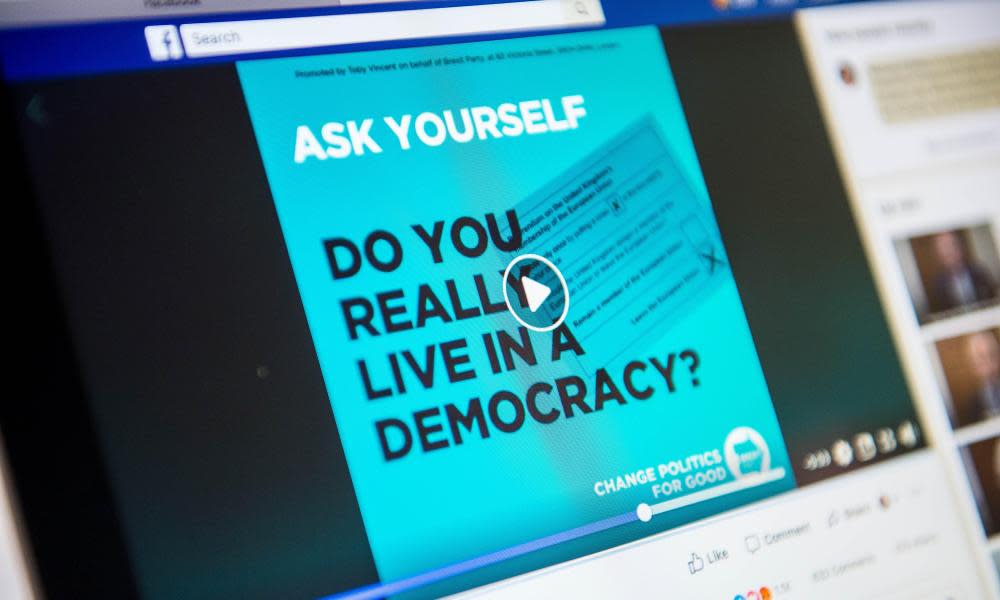Google crackdown on political ads 'will have minimal impact in UK'

A new rule banning microtargeting in political adverts will have minimal impact in the UK, the Guardian has learned, because the majority of political advertisers do not use the tools anyway.
Instead, British political advertisers spend the bulk of their money on search adverts with simple targeting to individual keywords. Often, those keywords relate to opposing parties: on Thursday, the Conservative party bought an advert for searches for the word “Labour” that took users to labourmanifesto.co.uk, a site set up by the Tories to attack Labour’s expected policies before either party had released their manifesto.
Google announced on Wednesday that it would ban microtargeting in political ads, starting in the UK “within the week”. When the ban comes into place, advertisers will only be allowed to narrow down audiences based on three general categories: age, gender and postcode-level location.
But in the UK, according to a Google source, political advertisers already lack access to “custom affinity” audience targeting, the most powerful form of microtargeting, which lets them define very narrow groups of voters and target specific messages to them. Other forms of microtargeting, such as focusing on a geographic point or targeting similar audiences to other content, were available but were rarely used by British advertisers, the source said. As a result, the ban would have minimal impact on the UK election.
Google declined to share specific figures about how many advertisers are currently using the soon-to-be-banned tools.
The company shares general information about advertiser spend, but only on a week-long delay, meaning it will not be possible to find out how much the Tories have spent advertising their Labour manifesto site until just two weeks before the election.
Catherine Stihler, the chief executive of the Open Knowledge Foundation, said the microtargeting ban was a “very welcome first step”, and called on Mark Zuckerberg to follow. “All eyes are now on Facebook, which, despite making some changes, is still accepting money for political ads which can contain disinformation,” she said.
“But the long-term solution to this does not involve self-regulation. The only way to build a fair, free and open digital future in the UK and across the world is to update analogue electoral laws for the digital age.”
In its manifesto, the Labour party has called for minor changes to digital campaigning regulation, including a legal requirement for online political adverts to have an imprint revealing who is promoting them.

 Yahoo News
Yahoo News 
